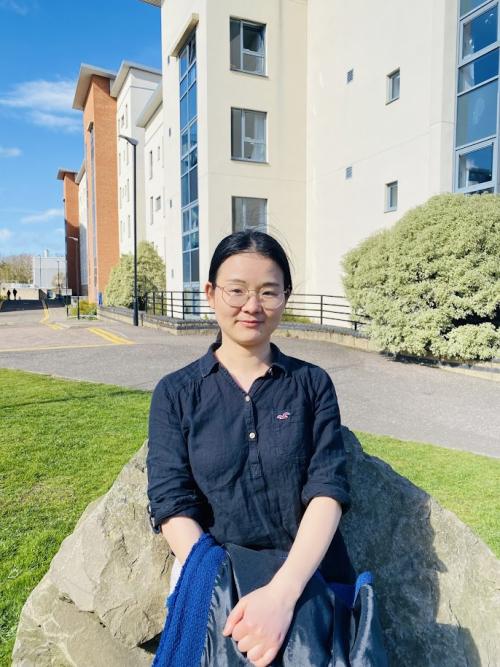
Dr Xingui Liu has been awarded a Marie Skłodowska-Curie Fellowship to undertake research in the lab of Professor Alessio Ciulli in the newly established Centre for Targeted Protein Degradation (CeTPD). The project is in collaboration with Professor Dario Alessi from the MRC Protein Phosphorylation and Ubiquitylation Unit and a Japanese pharmaceutical company. Alessio Ciulli, Director of the CeTPD stated: ”I congratulate Xingui for securing a highly competitive Marie Skłodowska-Curie Fellowship. In the just >1 year that she has been with us at Dundee, she has made tremendous strides on developing degrader molecules for a tough kinase target. The new fellowship funding will allow her to take full advantage of the exciting progress made to date and to forge new foundations upon which to further develop her research career in future”.
Marie Skłodowska-Curie Fellowships are awarded by the European Commission with the objective of supporting postdoctoral researchers’ careers and foster excellence in research. They target researchers holding a PhD who wish to carry out their research activities abroad, acquire new skills and develop their careers. The Fellowships help researchers gain experience in other countries, disciplines and non-academic sectors.
The School has welcomed 18 Marie Skłodowska-Curie Fellows since 2014 and we look forward to welcoming more in the coming years as we remain eligible for the scheme run by Horizon Europe.
Meet our new Fellow Xingui Liu
Why did you apply for the scheme?
“I applied for the scheme because the Marie Skłodowska-Curie Postdoc Fellowship is the most prestigious postdoc fellowship granted by the European Commission. It is a great honor to be awarded it. This fellowship will boost my ongoing research at Dundee and allow me to expand my skillset, not only new technical skills but also transferable skills, such as project management, leadership, and writing, which will prepare me to take the next step for my career.”
Where are you coming from?
“I am originally from China where I was born and grew up. Before joining Alessio Ciulli’s lab here at the University of Dundee, I was a postdoc at the University of Florida in the United States. It was there that I first got exposed to a small-molecule approach that was new to me, named proteolysis targeting chimeras (PROTACs). I was part of a team that developed very effective BCL-XL/BCL-2 PROTAC degrader molecules, which were later licensed to the Dialectic Therapeutics and led to the development of one of the first VHL-based PROTACs to enter the clinic and to be dosed in human patients for the treatment of hematological malignancies.”
Why did you pick Dundee/Life Sciences?
“I chose to join Dundee/Life Sciences because the Ciulli lab is one of the pioneers in the targeted protein degradation field. I am fascinated by the techniques and research work done in his lab and always enjoyed reading the publications from his lab when I was doing my postdoc training at the University of Florida. The platform provided by the School of Life Sciences is world leading with outstanding laboratories and technology facilities.”
What was your experience of the application process?
“The application process is really a teamwork, and I got a lot of support from my advisor, colleagues, collaborators, and grant advisor. Alessio encouraged me to apply for it and discussed both the structure and the details of the proposal with me. Grant Davidson from Research and Innovation Services helped a lot with the application in terms of time management and the proposal format, and he is always there when I have any questions about the application. Angus Cowan and Claudia Diehl who were awardees of Marie Curie fellowship last year in our lab shared their valuable experiences with me during the application. Dario Alessi was also very supportive of my application and helped me revising and proof-reading the proposal.”
What is your research project?
“This is a collaborative project with Dario Alessi’s lab aiming at developing PROTAC degraders for a Parkinson’s disease related target. I have been working on this project together with Alexia Kalogeropoulou, a PhD student in Dario’s lab. A Japanese company is our industry partner that has been supporting me via a Fellowship that I have held since I joined the Ciulli Lab. This target is promising for Parkinson’s disease treatment. Many inhibitors have been developed and two of them are currently in clinical trials, however they have limitations as the inhibited protein can interfere with natural mechanisms and lead to side effects. The PROTAC degraders we are developing leverage the cell’s natural protein disposal system to degrade rather than inhibit the target, and thus offering a different type of pharmacological intervention.”

